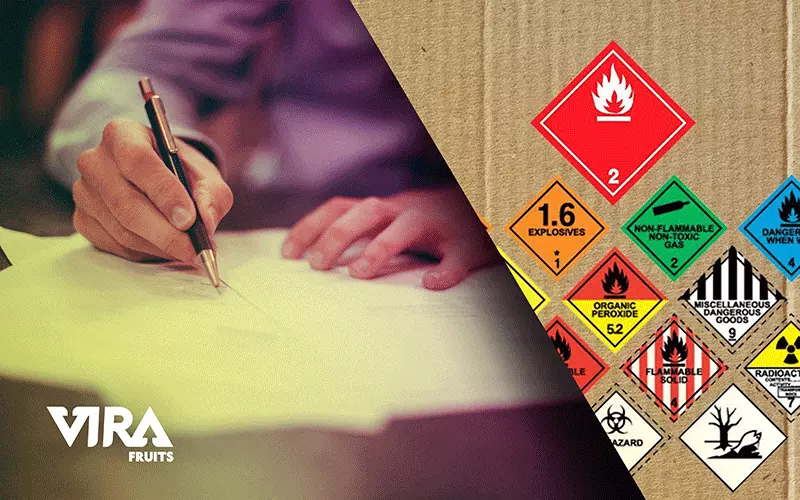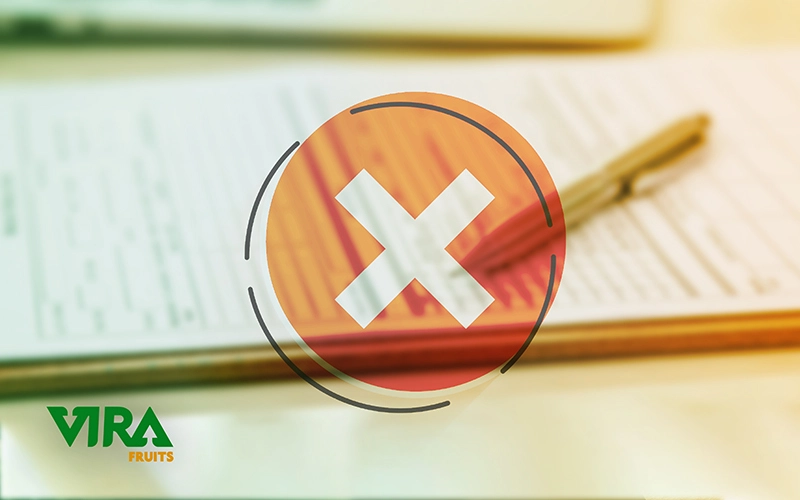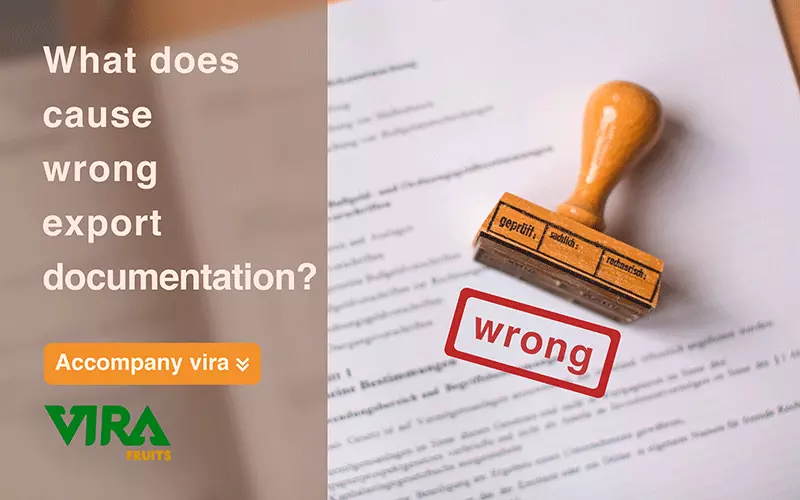As a rule, exporting products to another country requires the products to comply with the export regulations for the country it is leaving, as well as meet the destination requirements for the country it is entering. Having an accurate set of documents is necessary for this. If mistakes or non-compliance are made, the process may be slowed down, and, in some cases, the process may be time-consuming and costly to resolve. So it is highly important to recognize the causes of wrong export documentations. In order to maintain the shipment on time as well as ensure payment, accurate and consistent documentation is required. As part of the export transaction, additional documentation will be required too. These are dependent on the country of destination and the nature of the goods being shipped. For example, some products like Iranian apple, since they can be rotten if they are not in the ideal condition, have their own regulations.
Wrong Value
Your customer may ask you to change the value of a commercial invoice when you create it so that they can save money on import duties. But this is a mistake that you should be aware of. One of the situations in which the customer is not right is this one. It is illegal to make export documents that contain incorrect values for goods.
At best, compliance that does not meet expectations can, at best, improve your company’s reputation. The ‘adjustment’ you made might lead to fines or penalties at worst.

Dangerous Goods Forms Filled Out by The Wrong Person
Putting it bluntly, mislabeling your dangerous goods can have disastrous consequences. Simply you can Keep these consequences to a minimum means making sure the right person fills out the form. In this way you can keep away from wrong export documentation. This paperwork may need to be completed by you or a few trained employees, depending on the size of your company. As a matter of fact, we (and the government) believe that it’s essential that you have the proper training before completing these forms.
Wrong contact, Packing and Payment Information
Providing wrong contact information, packing instructions, or payment information for your export documents can result in the wrong address being used.

Wrong Classification of Goods
Misclassification of goods can result in costly consequences, so getting it right is crucial. Your products can either be classified according to Schedule B or the Harmonized System (HS). Whichever code set you use to categorize your goods, you need to use all ten digits on your export documents. The first six digits of the codes are typically listed on documents that are used internationally since they are the same throughout almost every country. The exporter may choose to leave out any HS codes from any paperwork that facilitates the import of the goods, such as the commercial invoice.
Incorrect contact, payment, and packing Information
Export documentation errors can result in incorrect shipping, packing, or payment information which can result in your products being delivered to the wrong address. As a result of the false contact information or the absence of contact for your shipments, your goods may arrive late or not at all if problems arise during transit. The wrong address on a waybill could end up delivering your goods to an incorrect location.
Packing lists that are inaccurate. Officials at customs may need to dismantle and inspect your entire shipment if your goods are incorrectly labeled when customs want to review your goods. Incomplete bank draft forms may prevent your payment from being received on time.

Incorrect product description
The description of the goods on the letter of credit must match the descriptions of the products on your credit letter. Payment would be delayed if there were discrepancies. Letters of credit tend to fail for seven common reasons.
- Misunderstanding the purpose of a letter of credit
- Using a letter of credit, when another payment option is preferable
- Not discussing the letter of credit by parties during their negotiations of the contract
- Failing to check that the proforma invoice and the contract match.
- Incorrect or inadequate review of a letter of credit at the time of its receipt.
- Failing to meet all terms of the letter of credit
- Inexperienced individuals preparing the documents under a letter of credit
Vira Fruits, that exports different kinds of persian dates to worldwide, is one of the companies that pays close attention to their product description. Therefore they have succeeded in reducing wrong export documentation.
most common errors in documents
In exports, the following errors are common:
- Expiration of the Letter of Credit has taken place.
- Claused/Dirty/Unclean Bill of lading
- The Bill of Lading is outdated.
Last words
No matter how large your company is, mishaps and wrong export documentation are bound to occur as a result of employee carelessness, confusion over regulations, or simple typos. Creating export documents is your responsibility and should be done carefully. By not providing the appropriate paperwork, you’ll delay shipments and your payment.
